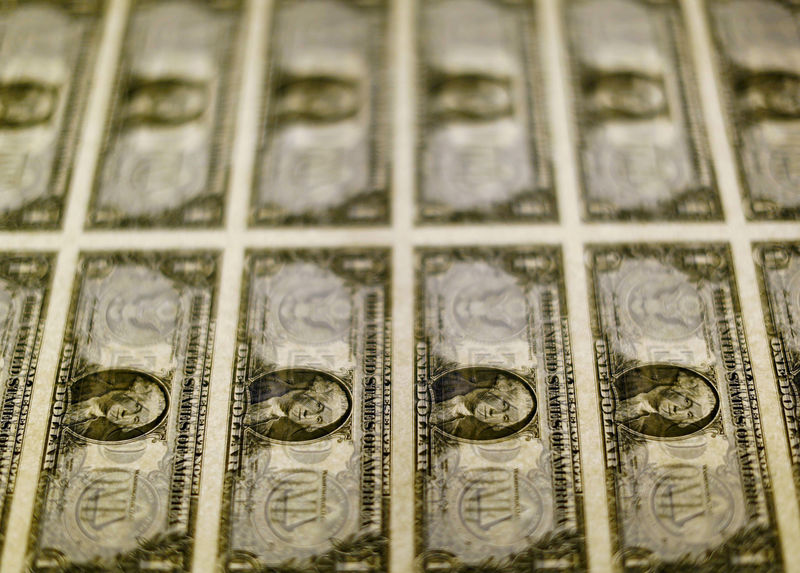By Vatsal Srivastava
SINGAPORE (Reuters) - The dollar was under pressure early on Thursday on growing expectations the Federal Reserve will pause its rate tightening cycle this year, while optimism about the Sino-U.S. trade talks reduced demand for safe-haven assets.
Minutes from the Fed's Dec.18-19 meeting revealed that several policymakers were in favor of the US central bank keeping rates steady this year.
Broader market sentiment was also bolstered in early Asian trade amid signs of progress in U.S.-China trade talks. Trade tensions between the world's two largest economies had rattled markets for most of last year.
"The Fed has acknowledged market concerns with its language. The markets are clearly reading into this as a more accommodative stance," said Michael McCarthy, chief markets strategist at CMC Markets.
"Optimism on US-China trade talks is also bolstering risk sentiment...the sharp rally in oil prices is also indicative of the fact that global growth fears were probably overdone," added McCarthy.
Commodity currencies such as the Canadian dollar
Also supporting the loonie was the Bank of Canada's assessment that further rate hikes may be necessary.
The dollar index (DXY) was marginally lower at 95.14, after losing 0.7 percent on Wednesday. The index has weakened in four out of the last five sessions as traders wager that US interest rates will stay steady in 2019.
The dollar had gained 4.3 percent in 2018 as the Fed hiked rates four times on the back of a strong domestic economy, falling unemployment and rising wage pressures.
The euro (EUR=) and sterling
Economic data in the eurozone has remained consistently weaker than estimates over the last few months, especially in France and Germany, the eurozone's economic powerhouses. The European Central Bank is widely expected to remain accommodative in 2019, which should keep a lid on the single currency.
Brexit woes are most likely to dominate sentiment towards sterling. Britain's Prime Minister Theresa May must win a vote in parliament to get her Brexit deal approved or risk seeing Britain's exit from the European Union descend into chaos. The vote is now due to take place the week beginning Jan. 14.
May's chances of winning the vote look slim as the DUP, the small Northern Irish party that usually props up her government, is opposed to the deal.
Elsewhere, the Australian dollar
China is Australia's largest trade partner and improving sentiment in the world's second largest economy usually bodes well for the Aussie dollar.
